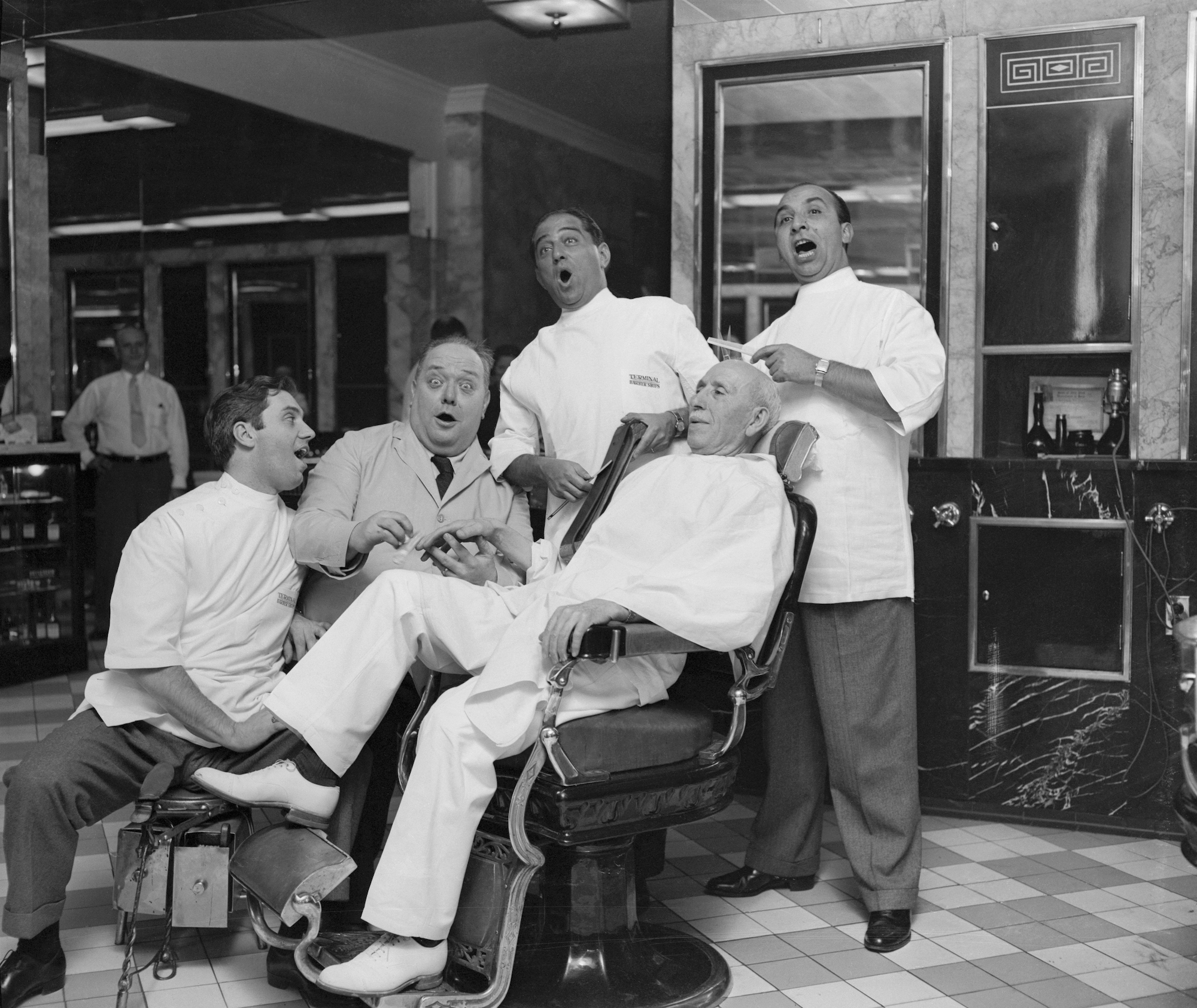Seventh Heaven
Barbershop quartets are more than meets the ear
by Jonathan Rowe

Don’t let a century’s worth of pop culture fool you — the best of the best barbershop quartets have five voices.
Sure, four striped-shirt, straw-hatted, bow-tied bodies — but five voices. The second tenor sets the stage with a lead melody line, which the first tenor lays a high harmony on. The baritone singer handles mid-range, while the bass, the deepest voice of the four, lays a solid foundation. But when the overtones of these four pitch-perfect voices unite and merge, an invisible fifth voice emerges from the ether, an everywhere-but-nowhere aural apparition not unlike the effect of Buddhist monks chanting in a massive ancient temple. This unified fifth-voice phenomenon is known as harmonic coincidence, though it is nowhere near a coincidence, accident or fluke.
Summoning what former Barbershop Harmony Society President Art Merrill calls, “the voice of the angels,” takes well more than four peppy singers with dreamy voices. In fact, should one of the four mortals as much as drift off-pitch, the heavenly house of cards drops.
